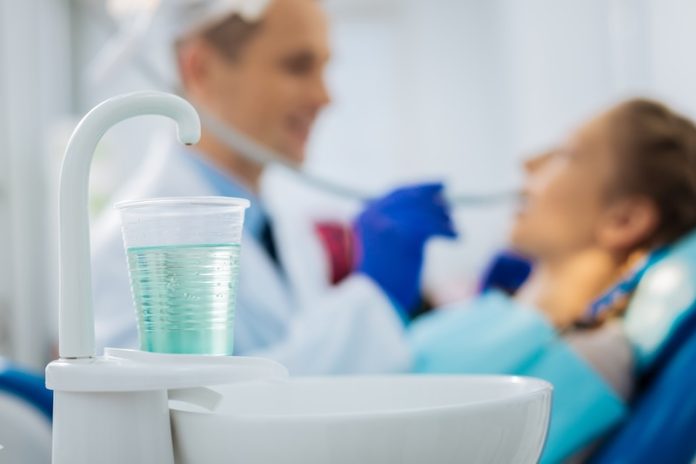
Type 2 diabetes and periodontitis, commonly known as gum disease, often coexist. Managing both conditions can be challenging.
A recent study conducted by Dr. Patricia Diaz and her team at the University at Buffalo School of Dental Medicine offers hope.
They demonstrated that individuals with type 2 diabetes can significantly benefit from a personalized at-home oral care routine, including antimicrobial mouth rinses and small brushes for cleaning between teeth.
These findings open up new possibilities for improving oral health in diabetic patients and may have broader implications for precision medicine.
The Link Between Diabetes and Gum Disease
Type 2 diabetes is a chronic condition characterized by high blood sugar levels due to the body’s inability to use insulin effectively.
Periodontitis is a severe form of gum disease that can lead to tooth loss and other oral health issues. Studies have shown a strong connection between diabetes and gum disease, with diabetic individuals being more susceptible to periodontitis.
The primary goal of Dr. Diaz’s study was to assess the impact of a personalized at-home oral care routine, in addition to standard gum disease treatment, on individuals with moderate to severe periodontitis.
Additionally, the researchers aimed to compare the responses of diabetic and nondiabetic participants to this personalized regimen.
The results of the study were particularly encouraging for diabetic patients who followed the personalized oral care routine. These individuals experienced a significant reduction in periodontal inflammation compared to diabetic participants who received the standard treatment.
The exact reasons for this difference are not entirely clear, but it may be related to the weakened healing response often observed in people with diabetes.
What sets this study apart is its focus on tailoring oral care to the specific needs of diabetic patients.
While antimicrobial mouthwashes have been recommended for individuals with gum disease for years, this research demonstrates the potential benefits of personalized treatment approaches.
It acknowledges that not all patients are the same, and precision medicine can play a crucial role in improving health outcomes.
Despite the promising results, further research is needed to validate these findings and better understand the underlying mechanisms.
Dr. Diaz is already pursuing additional studies to explore the microbiome’s impact on diabetes and oral health. While the study’s findings are a significant step forward, precision medicine in dental care still requires more definitive answers.
Conclusion
Type 2 diabetes and gum disease often go hand in hand, presenting a unique challenge for individuals managing both conditions.
Dr. Patricia Diaz’s study offers a glimmer of hope by highlighting the potential benefits of personalized oral care routines.
Diabetic patients who followed this tailored approach experienced improved gum health, demonstrating the value of precision medicine in dentistry.
As research in this area continues to evolve, it holds the promise of transforming oral care for individuals with diabetes and potentially revolutionizing treatment approaches for various health conditions.
If you care about dental health, please read studies about best food for tooth and gum health, and how to prevent and reverse gum disease.
For more information about diabetes, please see recent studies about Keto diet could help control body weight, blood sugar in type 2 diabetes and results showing to people with diabetes, some fruits are better than others.
The research findings can be found in JDR Clinical & Translational Research.
Follow us on Twitter for more articles about this topic.
Copyright © 2023 Knowridge Science Report. All rights reserved.



